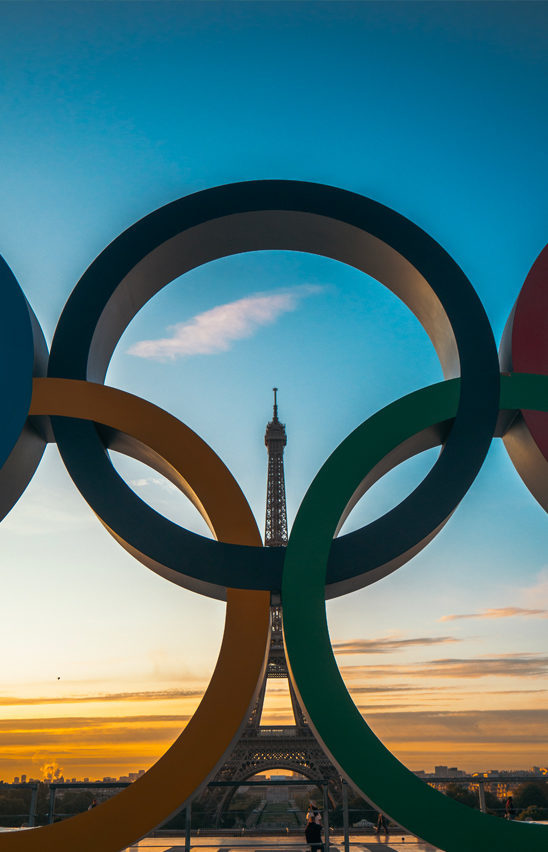
The Communication of Paris for the Allocation of Olympics 2024
After Boston, Hamburg and Rome, Budapest has just withdrawn its candidacy for the 2024 Olympic Games, under the pressure of more than 200,000 signatories of a citizens’ petition. A world event with a tremendous impact – 3.6 billion people have watched at least one minute of the 2012 London Olympics, and 5 billion people followed the 2016 Rio Olympics on social networks –, have the Olympics lost some of their attraction? Does their gigantism henceforth create more fear than envy – between excessive costs and suspicions of corruption? Clearly.
This does not prevent the two cities in competition, Paris and Los Angeles, to engage in a fierce battle, of which testify their communication strategies in a campaign that is similar in all respects to an election campaign… worldwide.
Hoping to be nominated by the IOC on September 13th in Lima, almost 100 years after hosting its last Games, Paris has experienced three spectacular defeats in 1992, 2008 and 2012. The last failure remains the most stinging, Paris having been narrowly defeated by London, to the general surprise, and despite a technical dossier close to perfection. This failure can be explained in the first place by a communication that has been too institutional and too far from the target to convince: the sport world. A responsible, in particular, was the overexposure of the mayor of Paris, Bertrand Delanoë, while London was represented by former middle-distance runner Sebastian Coe, twice an Olympic champion. At the same time, French sports minister Jean-François Lamour, also a double Olympic champion, was reduced to playing second fiddle within the French delegation. If the film presented in Singapore by Paris in support of its candidacy highlighted the technical excellence of its dossier, that of London was an hymn to sport and Olympism, as a source of surpassing oneself and a vehicle for individual promotion. And one may recall that Prime Minister Tony Blair was on an official visit to Singapore during the decisive meeting of the IOC in July 2005, and he did not deprive himself of campaigning among its members, even in their hotels, with the support of global football star David Beckham.
TO WIN THE OLYMPICS, IT REQUIRES AS MUCH AS “KNOW-HOW” AS “MAKE-KNOWN”.
For its 2024 candidacy, Paris seems wanting to draw inspiration from the London example in all respects. This is evidenced by the evolution of its communication. Initially, the campaign was launched around a statement, “I dream of the Games”, and a signature, “The force of a dream”, conveyed by the greatest French sportsmen and repeated by children in television commercials. Then, on February 3rd, Paris launched its international promotion campaign with a slogan in English, “Made for sharing”, and its French translation, “Venez partager”. While this signature in English has attracted much criticism from associations defending the French language – which remains the first language of Olympism –, it aims at striking minds internationally and to demonstrate a new posture, more open, more humble.
At the same time, the candidacy is being supported by athletes and, first of all, by Tony Estanguet, triple Olympic canoe champion and co-chairman of the organising committee, widely put forward in all the communication.
For the 2012 Games, London had chosen as the second axis of communication a genuine restructuring of its Eastern neighbourhoods – previously very disadvantaged –, that would allow the realisation of the Olympic Village’s main equipment. In the case of Paris 2024, the candidature is as much this of Seine-Saint-Denis as that of the city.
Finally, Paris has acquired the best asset in terms of influence to ensure a good relay, with the help of lobbyist Mike Lee, who has participated in the victories of London and Rio. A priori, the lessons of the Singapore failure seem to have been perfectly learned. But by reusing as exactly the ingredients of London’s success, is not Paris fighting yesterday’s battle?
Indeed, the Californian application is based on Los Angeles’ attractiveness – presented as “the city of tomorrow” –, and focused on new technologies, sustainable development and respect for the environment, with the signature “Follow the sun”. It is the legend of the West Coast, Silicon Valley, sun and surfing together, against the good Parisian student, athletic, thrifty and socially integrating!
The fight is thus far from being won in advance. The outcome is even unpredictable, especially as it can be influenced by external factors such as the “Muslim ban” wanted by Donald Trump or the outcome of the May 2017 presidential elections in France. A victory of Marine Le Pen would indeed have repercussions on Paris’ candidacy. Everything is communication, and there are stronger messages than others.
